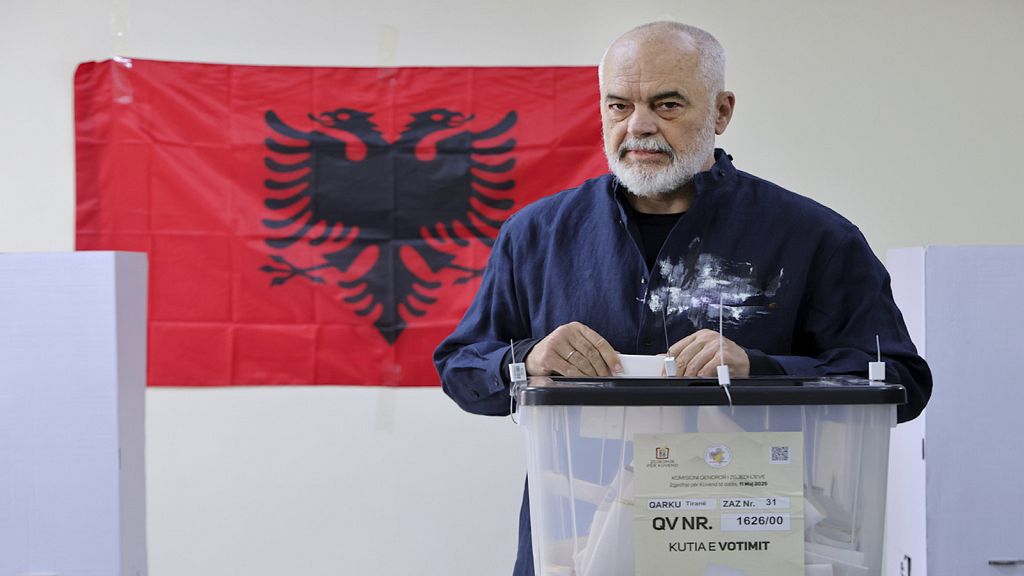The prime minister of Albania, Edi Rama seeks an unprecedented fourth term in office during a campaign dominated by promises to join the European Union and accusations of widespread graft.
Albanian elections began as Albanians started voting in parliamentary elections on Sunday.
Polling stations opened at 7 a.m. (0500 GMT) and will close at 7 p.m as results were expected to be released on Monday.
Rama, in power as head of the Socialist Party since 2013, is favourite to win against his old rival, former prime minister Sali Berisha of the Democratic Party, bolstered in part by an influential network built over 12 years in power, a recent period of healthy economic growth and a largely popular image abroad.
But opposition to Rama has intensified in the past year over a perceived crackdown on the opposition, including Berisha, while Rama weathered a series of scandals of his own. These include the arrest of his ally, the mayor of Tirana Erion Veliaj, this year on allegations of corruption and money laundering.
Campaign
Rama has spent the last week reiterating his promise to join the EU by the end of the decade, although some experts doubt that timeline will be possible given the reforms required to join the bloc, including eradicating graft.
“We will get our fourth mandate, and we will not lose a single day for Albania 2030 in the EU,” he said at his final campaign rally on Friday.
Many young voters especially are tired of the likes of Berisha and Rama who have run the country in various roles since the fall of communism in 1990.
They point to Albania’s stark income inequality that sees many people drive expensive Range Rovers around the capital Tirana while others live in cramped Soviet-era housing.
Polls show Rama winning more than 40% of the vote, a commanding lead over Berisha, who has been weakened by graft charges. But he may need help from smaller parties to maintain a slim four-seat majority in the 140-seat house.
By some measures, Rama has done well. Annual economic growth above 4% for 2022-2024, driven by trade with the EU and a tourism boom, outstripped other Balkan countries, the World Bank says.
Read also: Albanian criminal avoids deportation from UK over son’s food



